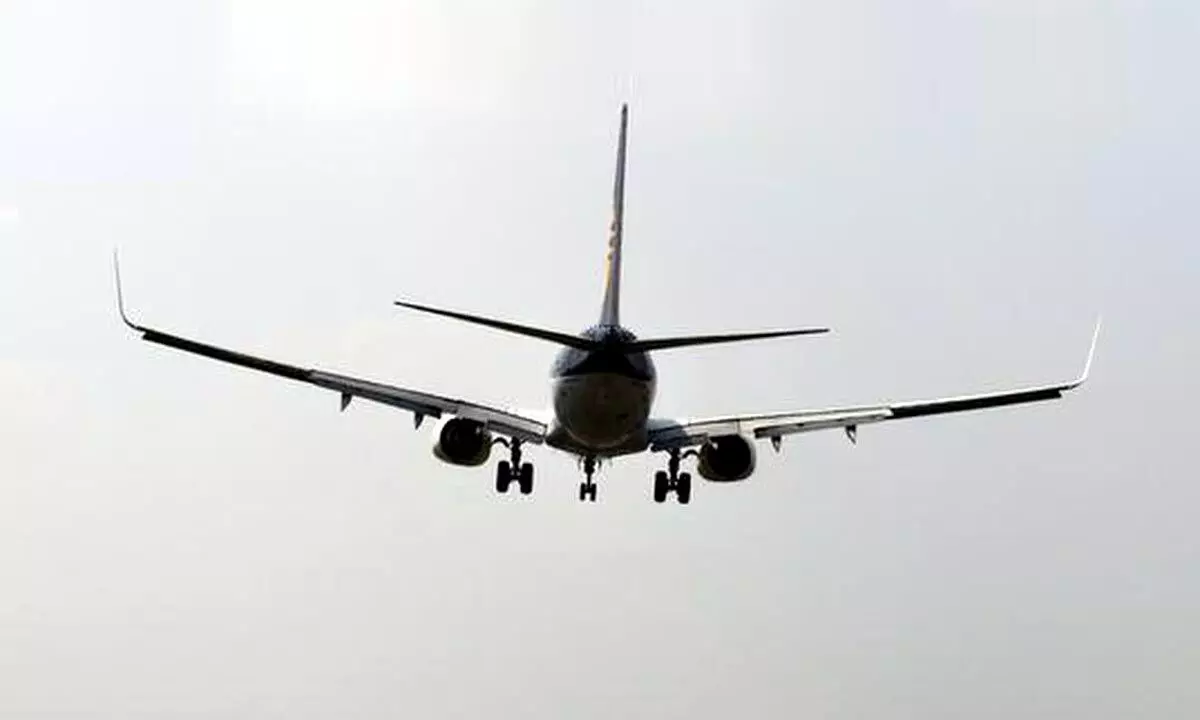Ensuring safe air travel
Aviation is the safest form of long distance transport. In 2018, the all accident rate (measured in accidents per 1 million flights) was 1.35, which was the equivalent of one accident for every 7,40,000 flights.
image for illustrative purpose

Aviation is the safest form of long distance transport. In 2018, the all accident rate (measured in accidents per 1 million flights) was 1.35, which was the equivalent of one accident for every 7,40,000 flights. This was an improvement over the all accident rate of 1.79 for the previous five year period (2013-2017).
Concretely, the 2018 fatality risk of 0.17, means that on average, a person would have to travel by air every day for 16,581 years to experience a 100 per cent fatal accident. But misdemeanours in the sky are taking a new hue. Passengers peeing on women fellow passengers, scuffles in the aircraft, smoking in the aircraft are all potential risks that could lead to accidents.
The airline, which is owned by Tata Group, said it had reported the matter to the Directorate General of Civil Aviation (DGCA), India's air safety watchdog, for further action. DGCA, however, said that it had sought details from the airline on the incident, but at first glance it appeared that Air India had not complied with provisions related to the handling of an unruly passenger onboard. "The conduct of the concerned airline appears to be unprofessional and has led to a systemic failure," DGCA said in its statement.
The watchdog said it had issued a notice to the airline's executives and the pilots and cabin crew members on the flight asking them to explain within two weeks why action should not be taken against them for failing to uphold regulations. The draft was released in May and was expected to be finalised by June, but is yet to see the light of day despite the government recognising unruly passengers as a safety threat.
Although unruly passengers represent only a minute proportion of passengers as a whole, one aggressive passenger can jeopardise safety onboard. Unruly passengers affect all personnel involved in the process connected with a flight operation.
According to the draft rules, immediately after an act of misdemeanour by a passenger, an airline can ban the passenger from flying with it for 10 days. Air India has already banned the passenger from flying for 30 days.
By 2037, the number of passengers is projected to reach 520 million. Passenger traffic growth has thus increased by 11 per cent. To satisfy the growing demand, by 2038, the country's aircraft fleet is anticipated to grow fourfold to about 2500 aircraft. The government has also pledged to build 100 additional airports by 2024 of the Ude Desh ka Aam Nagrik (UDAN) scheme. The air fleet number is also expected to increase from 600 to 1200.
Despite the Covid-19 pandemic, the Indian aviation sector has been back on track. The government supports this industry and is prepared to take any necessary step to establish India as a global leader in aviation-related needs.
The government needs to take strong steps to control this unruly behaviour of passengers or air rage to ensure safety of flights and passengers which will encourage more and more people to fly. Airlines on their part should have a policy of not serving more than three drinks, ensuring there is no let up on services especially with regards to water, tea, coffee, blankets, entertainment and other essential services.

